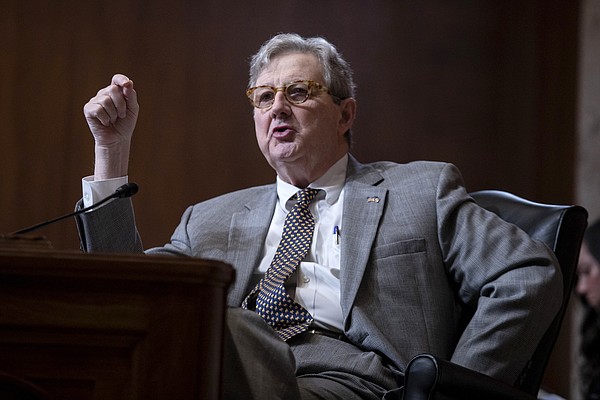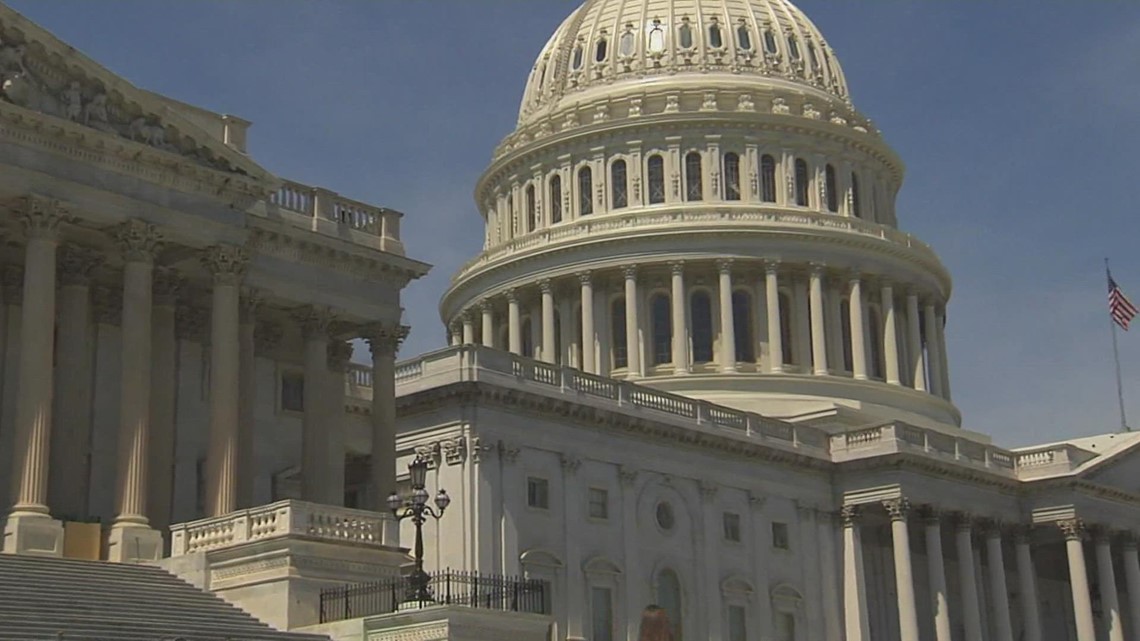WASHINGTON — New legislation introduced in the Senate would require the Justice Department to establish guidelines for the Federal Bureau of Prisons and state correctional systems to notify families of incarcerated individuals if their loved one has a serious illness, life-threatening injury or if they die behind bars.
The bill – introduced by Sens. Jon Ossoff, D-Ga., and John Kennedy, R-La. — is the latest step by members of Congress to strengthen oversight of the federal prison system.
Thursday’s introduction of the bill comes more than two years after The Associated Press reported how the Federal Bureau of Prisons ignored its internal guidelines and failed to notify the families of seriously ill coronavirus inmates as the virus raged in federal prisons across the United States. And it follows reports of similar behavior in state prisons across the US.
AP reports on the federal prison system have revealed layer upon layer of abuse, neglect and leadership missteps within the Bureau of Prisons – including rampant sexual abuse by workers, severe shortages understaffing, inmate escapes and mishandling of the covid-19 pandemic — leading directly to the agency’s director announcing his resignation earlier this year.
The bill, known as the Family Notification of Death, Injury, or Illness in Custody Act of 2022, aims to ensure that families receive timely notifications if their family members suffer serious health complications.
In April 2020, the AP reported that officials at FCI Terminal Island, a federal prison in Los Angeles, deviated from policy and chose not to call the family of 59-year-old Michael Fleming, who was hospitalized and put on a ventilator after being diagnosed with covid-19. The only call his son received was on the day of his father’s death, from a prison chaplain asking if the body should be cremated and where the ashes should be sent.
Fleming learned of his father’s cause of death from an AP reporter. Bureau of Prisons policy required prison officials to “promptly” notify the family of inmates who have serious illnesses. The agency defended its decision at the time, saying it had “discretion when making notifications.”
“Not having the opportunity to say goodbye — that would have been invaluable,” the younger Fleming said in an interview with the AP in 2020. “We will never have that chance.”
“Too often the families of those incarcerated are never informed of a serious illness, life-threatening injury or even the death of a loved one behind bars. That is why we have introduced this reform legislation bipartisan,” Ossoff said in a statement to the AP.
Kennedy said families “have a right to know about the well-being of their loved ones, and our bill would just make that happen.”
Ossoff has lobbied repeatedly for increased transparency in the federal prison system and is part of a growing group of lawmakers pushing to require the director of the Bureau of Prisons to be confirmed by the Senate.







